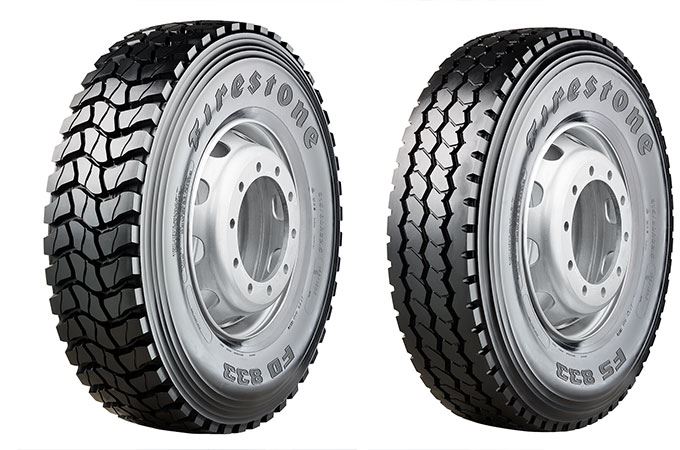Firestone FD833 and FS833 tyres now made for South African road conditions
Bridgestone Southern Africa has announced that its Firestone FD833 and FS833 truck and bus radial tyres that were previously imported are now fully manufactured at its manufacturing facility in Brits, Northwest.
The move is in line with Bridgestone’s strategy of “localising” some of its products in line with South African conditions, says Dries Venter, Technical Manager, Bridgestone Southern Africa. “We began importing these tyres from Europe two years ago. After trials, we identified and made design improvements that would make the tyres better suited for South African road conditions. Our European R&D labs supported with creating a compound that provides higher resistance to cuts and chips,” he says.
Venter says that the Firestone FD833 and FS833 tyres have several advantages over cheaper second and third-tier competitors. The tougher material means that the tyres last longer, even on our bad roads, which means that they need to be replaced less frequently. Their tread design also provides excellent traction and are self-cleaning for consistent performance. Another major plus is that the sturdy construction means that the tyre can be retreaded at least twice—in fact, the Firestone FD833 and FS833 tyres come with a casing confidence pledge guaranteeing this.
“Local manufacturing is a big plus because it helps protect local jobs and contributes to increasing the country’s gross domestic product—especially as these tyres are also exported to other markets in the region,” says Venter. “From a sustainability point of view, the longer life of the tyre plus its retreadibility are major pluses because they reduce the amount of waste going into landfill. At the same time, Bridgestone is pursuing a strategy making its tyres more recyclable – and fuel efficient. The lighter tyres also contribute to reducing the impact on the environment.”



